Discover Your Ideal Towel Type: Bath, Hotel & More
Optimizing Performance and Comfort: A Deep Dive into Modern Towel Technologies
In the B2B landscape, the selection of the appropriate towel type is a critical decision impacting user experience, operational efficiency, and brand perception. Beyond mere aesthetics, the performance characteristics, durability, and sustainability of textiles have become paramount for sectors ranging from hospitality and healthcare to sports and residential furnishing. This comprehensive guide explores the multifaceted world of modern towels, focusing on advanced materials, manufacturing precision, and strategic applications that define industry standards. We will delve into the technical specifications and operational advantages that enable businesses to make informed procurement decisions, ultimately enhancing their service offerings and client satisfaction.
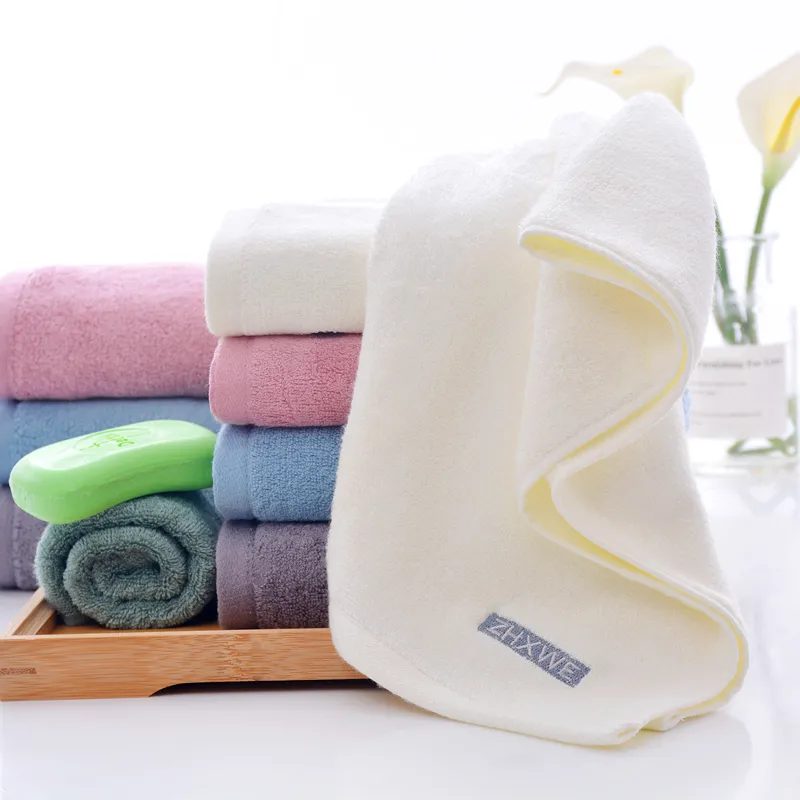
Understanding Diverse Towel Type Classifications
The market offers a broad spectrum of towel solutions, each engineered for specific functions and environments. While traditional cotton remains a staple, the evolving demands for enhanced absorbency, quicker drying times, and improved tactile sensation have driven innovations in material science. For instance, types of bath towels vary significantly in their GSM (Grams per Square Meter), which directly correlates with their plushness and absorbency. High-end hospitality often opts for higher GSM towels, typically ranging from 600-900 GSM, to convey luxury and superior comfort. Conversely, quick-dry fitness towels might feature lower GSM and specialized microfiber blends for efficient moisture wicking.
Beyond general utility, specialized categories such as towel type bath mat serve a crucial safety and comfort role in bathrooms, designed with non-slip backings and excellent water absorption to prevent slips and keep floors dry. Similarly, hotel type towels are synonymous with durability, requiring robust construction to withstand frequent industrial laundering while maintaining their integrity, softness, and colorfastness. The exploration of different types of towels reveals an industry pushing boundaries in material composition, weaving techniques, and finishing processes to meet an array of performance requirements and aesthetic preferences across various commercial applications.
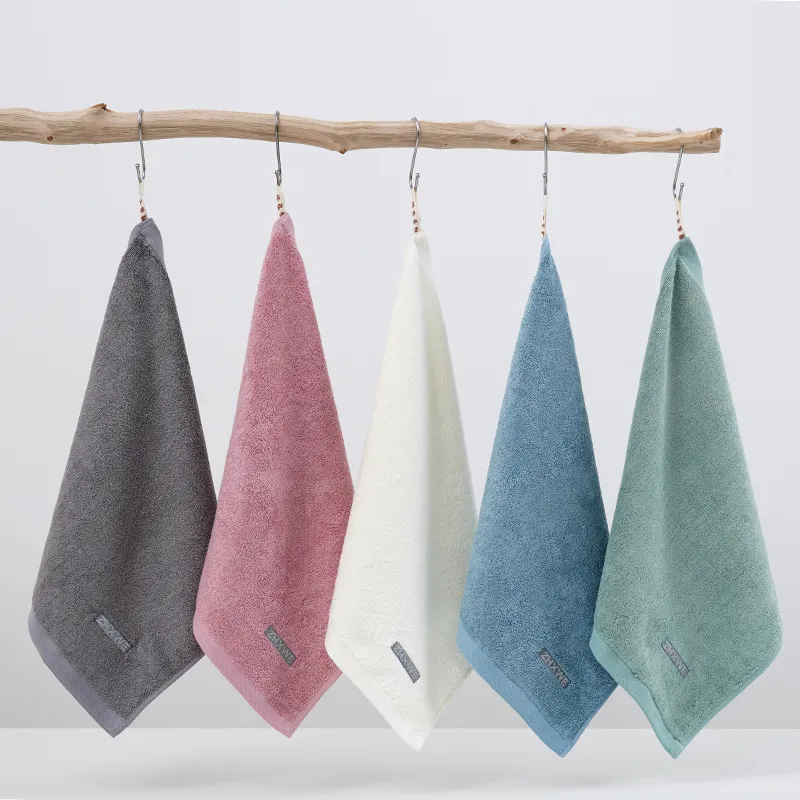
The Science of Viscose from Bamboo: An Emerging Standard
The drive for sustainable and high-performance textiles has spotlighted materials like viscose made from bamboo. This fiber, utilized in products like the Soft Viscose Made from Bamboo Hand Towel, offers a compelling combination of eco-friendliness and superior functionality. Bamboo as a raw material grows rapidly, requires minimal water, and thrives without pesticides, making it an environmentally conscious choice. The conversion of bamboo into viscose fiber involves a sophisticated process that breaks down the bamboo pulp and regenerates it into soft, durable threads. This yields a fabric renowned for its exceptional softness, often compared to cashmere or silk, and its remarkable absorbency, outperforming traditional cotton by up to four times.
Beyond its luxurious feel, viscose from bamboo fibers possesses inherent anti-bacterial and hypoallergenic properties, making this towel type ideal for sensitive skin and environments requiring stringent hygiene standards, such as healthcare facilities and premium spas. Its porous structure facilitates excellent breathability and quick drying, reducing the potential for mildew and odor accumulation, which translates to longer product lifespan and lower operational costs in commercial settings due to reduced laundry cycle times. The strength and resilience of these fibers also contribute to the longevity of the towels, enduring numerous washes without losing their plushness or structural integrity.
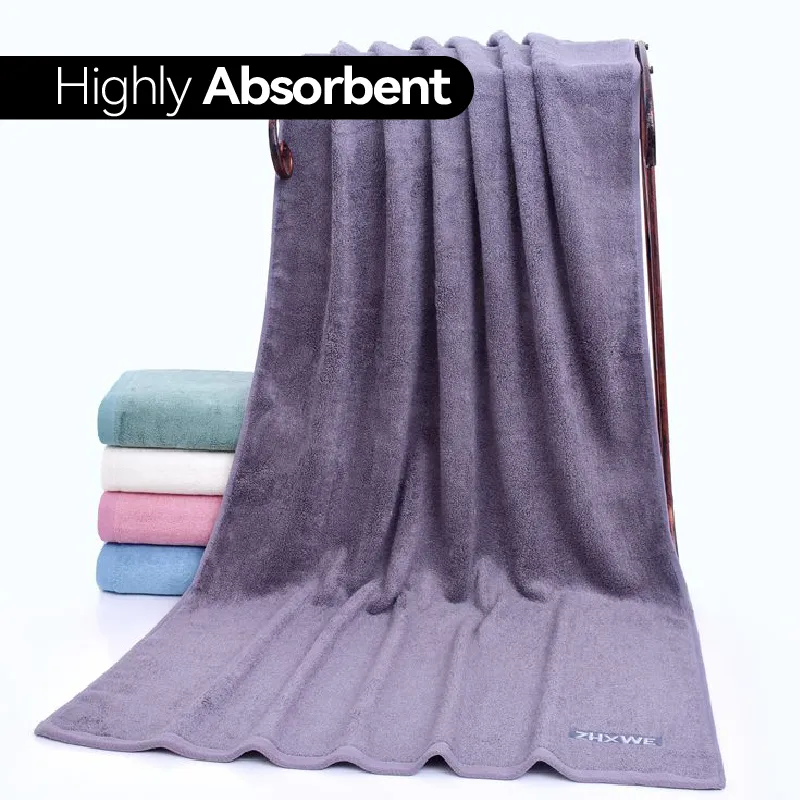
Advanced Textile Manufacturing Process: From Fiber to Finished Towel
The production of a high-quality towel type like the Soft Viscose Made from Bamboo Hand Towel is a meticulous multi-stage process, starting with the careful sourcing and processing of raw bamboo into viscose fiber. This involves chemical or mechanical methods to extract cellulose, which is then regenerated into soft, continuous filaments. The subsequent steps are crucial for the towel's ultimate performance and longevity.
- Yarn Spinning: Viscose fibers are carefully spun into yarns of specific counts and twists, optimized for softness and strength. Precise control over this stage ensures uniform yarn quality, which is vital for consistent towel texture and durability.
- Weaving: Most quality towels, especially bath and hand towels, employ a terry weave construction. This creates loops on both sides of the fabric, maximizing surface area for superior absorbency and a plush feel. Advanced weaving looms ensure consistent loop formation and fabric density, preventing snagging and maintaining structural integrity.
- Dyeing and Finishing: After weaving, the fabric undergoes dyeing using eco-friendly, reactive dyes for excellent colorfastness, ensuring the color remains vibrant even after extensive washing. Finishing processes include shearing (to create a smooth velour surface if desired), bleaching (for pristine whites), and softening treatments to enhance the luxurious feel.
- Quality Control & Inspection: Every batch is subjected to rigorous quality checks against international standards such as OEKO-TEX Standard 100 for harmful substances and ISO 9001 for quality management systems. Tests include absorbency rate, tensile strength, colorfastness to washing and light, and dimensional stability (shrinkage). This ensures products meet stringent performance criteria and offer an extended service life in demanding commercial environments, typically lasting for hundreds of wash cycles without significant degradation.
These meticulous processes ensure that the final towel type offers benefits like exceptional anti-corrosion properties against mildew, significant energy savings due to quicker drying, and suitability for industries such as hospitality, spas, and high-end residential.
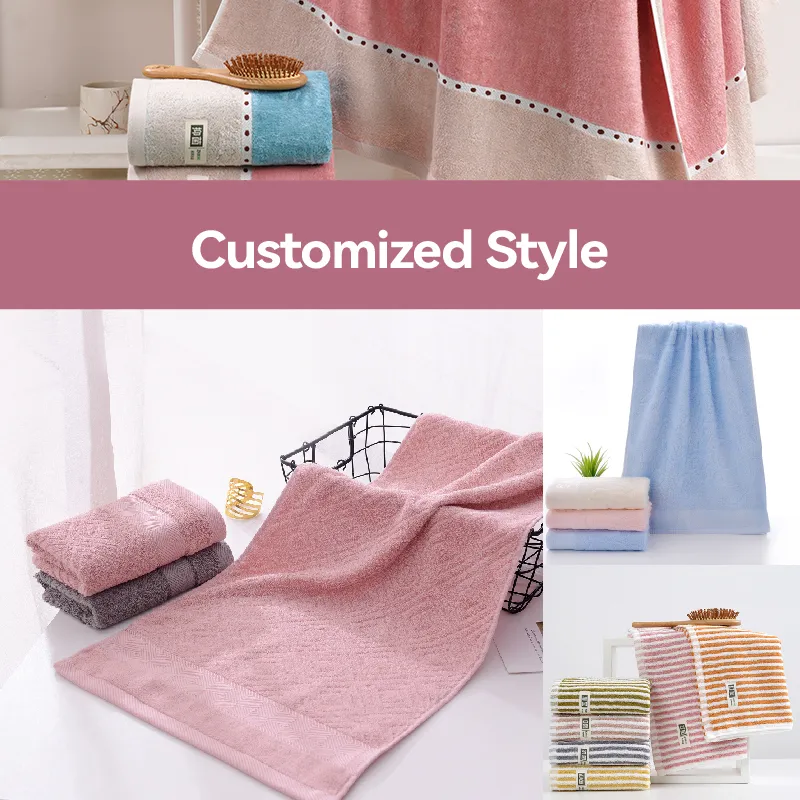
Key Technical Parameters and Performance Metrics
Choosing the right towel type for commercial applications hinges on understanding key technical specifications that dictate performance, durability, and value. Below is a comparison table outlining critical parameters for various towel types, including our featured Soft Viscose Made from Bamboo Hand Towel:
| Parameter | Viscose from Bamboo Towel (e.g., Soft Viscose Hand Towel) | Standard Cotton Terry Towel | Microfiber Towel |
|---|---|---|---|
| Material Composition | 100% Viscose made from Bamboo | 100% Cotton | 80% Polyester, 20% Polyamide |
| GSM (Grams per Square Meter) | 400-600 GSM (often feels denser due to fiber structure) | 400-700 GSM | 250-400 GSM |
| Absorbency Rate | Excellent (4x more absorbent than cotton) | Good | Very Good (quick wicking) |
| Drying Time | Fast | Moderate to Slow | Very Fast |
| Softness/Feel | Luxuriously Soft, Silky | Soft (can stiffen over time) | Smooth, Grippy |
| Durability/Lifespan | High, maintains integrity after many washes | Moderate, can show wear after many washes | High, resistant to chemicals |
| Anti-bacterial/Odor | Natural anti-bacterial properties | Low | Low (can retain odors if not cleaned properly) |
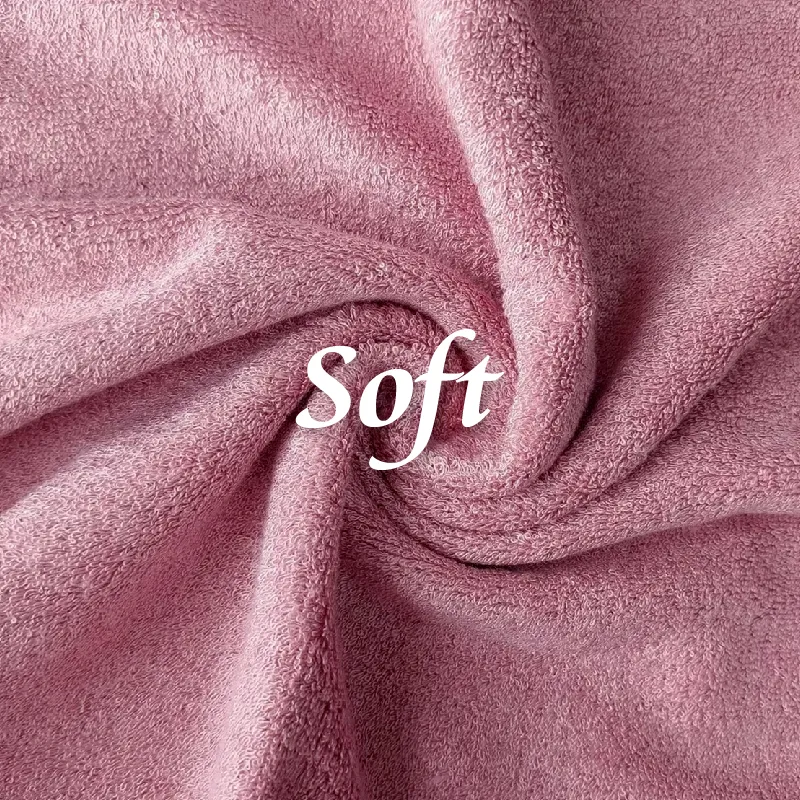
Application Scenarios and Industry Advantages
The strategic deployment of the right towel type can significantly uplift operational efficiency and customer experience across diverse industries. In the hospitality sector, from luxury hotels to boutique guesthouses, the plushness and absorbency of bamboo towels elevate the guest experience, contributing positively to online reviews and repeat business. Their rapid drying characteristic also translates into tangible operational savings by reducing laundry processing times and energy consumption.
Healthcare facilities, including clinics and rehabilitation centers, benefit immensely from the hypoallergenic and naturally antibacterial properties of viscose from bamboo. These characteristics are crucial for maintaining hygiene standards and providing comfort to sensitive skin, minimizing risks of irritation. Spas and wellness centers prioritize these attributes to ensure a serene, clean, and luxurious environment. For industries focusing on eco-friendly practices, the sustainable sourcing and production of bamboo towels align perfectly with corporate social responsibility initiatives, enhancing brand image and appealing to an increasingly environmentally conscious clientele. The durability and ease of care make this towel type a cost-effective choice over its extended service life.
Customization Solutions and Manufacturer Partnerships
B2B clients often require bespoke solutions to align with their specific brand identity or functional needs. Reputable manufacturers of advanced towel type products offer extensive customization options, including specific sizes, custom colors matching corporate palettes, and embroidery or jacquard weaving for logos and branding. This level of customization allows businesses to reinforce their brand presence in every touchpoint, from guest bathrooms to executive fitness centers.
When selecting a manufacturing partner, it's crucial to assess their adherence to international quality standards such as ISO 9001, their commitment to sustainable practices (e.g., OEKO-TEX Standard 100 certification), and their track record of timely delivery and robust customer support. Long-term partnerships with manufacturers known for their innovation and quality control ensure consistent supply of high-performance towels, minimizing operational disruptions and ensuring client satisfaction. Many leading suppliers, like Longshow Textile, have years of experience serving diverse B2B clients, providing expert consultation and seamless integration of customized textile solutions.
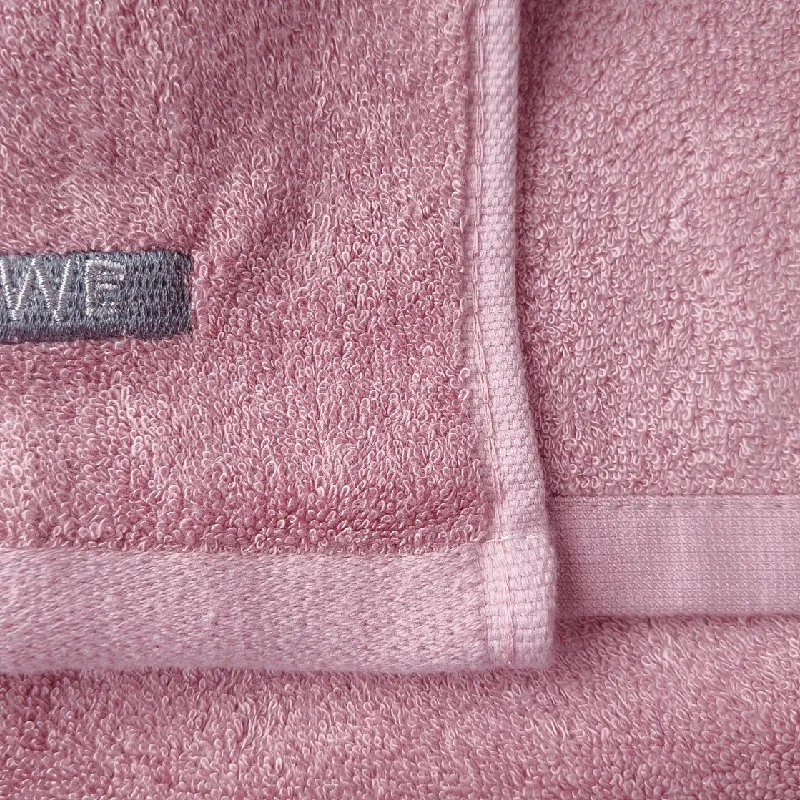
Real-World Application Cases & Client Success
A premier five-star hotel chain recently transitioned its entire bath and hand towel inventory to bamboo viscose blends. This strategic shift resulted in a reported 15% reduction in laundry operational costs, primarily due to faster drying times and reduced energy consumption. More significantly, guest satisfaction scores related to in-room amenities saw a noticeable uplift, with specific mentions of the "unparalleled softness and absorbency" of the new towels in post-stay surveys. This highlights how an investment in a superior towel type directly translates into tangible operational savings and enhanced customer perception.
Similarly, a high-end spa and wellness retreat implemented custom-branded Soft Viscose Made from Bamboo Hand Towels for their treatment rooms and fitness areas. The natural hypoallergenic and anti-bacterial properties of the bamboo towels resonated deeply with their clientele, who prioritize health and natural products. The spa reported a decrease in skin irritation complaints and an improvement in overall hygiene feedback. These case studies underscore the transformative impact that a carefully selected and technically superior towel type can have on both a business's bottom line and its reputation for quality and sustainability.
Frequently Asked Questions (FAQ)
- Q: What makes viscose from bamboo an ideal material for commercial towels?
A: Its exceptional absorbency, natural softness, rapid drying, and inherent anti-bacterial/hypoallergenic properties make it superior for commercial use, offering both comfort and hygiene benefits. - Q: How do bamboo towels compare to cotton in terms of durability and lifespan?
A: While both are durable, bamboo towels often maintain their plushness and structural integrity longer than cotton, especially under frequent commercial laundering, thanks to their stronger, more resilient fibers. - Q: Are bamboo towels truly sustainable?
A: Yes, bamboo is a highly renewable resource that grows quickly without needing extensive irrigation or pesticides. The manufacturing process of viscose from bamboo can be optimized for environmental efficiency, making it a more sustainable choice than conventional cotton. - Q: What are the typical delivery periods for large B2B orders?
A: Delivery periods vary based on order volume, customization requirements, and current production schedules. Standard lead times typically range from 4-8 weeks from order confirmation, with express options available for urgent needs. Specific timelines are provided upon request and order specification. - Q: What kind of warranty or quality assurance is offered?
A: Reputable manufacturers offer comprehensive quality assurance, including adherence to ISO and OEKO-TEX standards. Product warranties typically cover manufacturing defects for a specified period, ensuring the quality and performance of the towel type. Dedicated customer support is available for post-purchase assistance and any inquiries regarding product performance or care.
Quality Assurance and After-Sales Support
Our commitment to excellence extends beyond product delivery. Each towel type undergoes rigorous multi-stage quality control, adhering to stringent international standards, including OEKO-TEX Standard 100, which guarantees textiles are free from harmful substances. Our production facilities also maintain ISO 9001 certification, reflecting our robust quality management systems from raw material sourcing to final packaging. We provide a comprehensive warranty covering manufacturing defects, ensuring your investment is protected. Our dedicated customer support team is readily available to assist with any technical inquiries, product care guidelines, or after-sales service requirements, ensuring a seamless and satisfactory experience for all our B2B partners. This commitment to ongoing support underscores our confidence in the superior quality and longevity of our towel products.
References
- Textile Industry: Sustainability and Innovation in Fiber Production.
- Advanced Materials in Hospitality: Enhancing Guest Experience through Smart Textiles.
- Environmental Impact Assessment of Viscose Fiber Manufacturing.
- The Role of Textile Certifications (OEKO-TEX, ISO) in Global Supply Chains.
- Comparative Analysis of Absorbency and Drying Times of Natural and Synthetic Fibers.
-
Garment Washed Sheets Color Retention Prevents Fading After WashesNewsNov.14, 2025
-
Charcoal Bamboo Sheets Moisture-Wicking Property Enhances Sleep ComfortNewsNov.12, 2025
-
High Quality Satin Sheets Soft Touch Improves Hotel Guest ExperienceNewsNov.12, 2025
-
Poly Cotton Sheets Breathable Weave Reduces Skin Irritation For PatientsNewsNov.12, 2025
-
Microfiber Sheet Stain Resistant Feature Eases Hotel HousekeepingNewsNov.12, 2025
-
Polyester Cotton Bedding Durable Fabric Withstands Frequent Hotel WashesNewsNov.12, 2025
-
Microfiber Pillow Filling Even Distribution Prevents LumpingNewsNov.03, 2025






